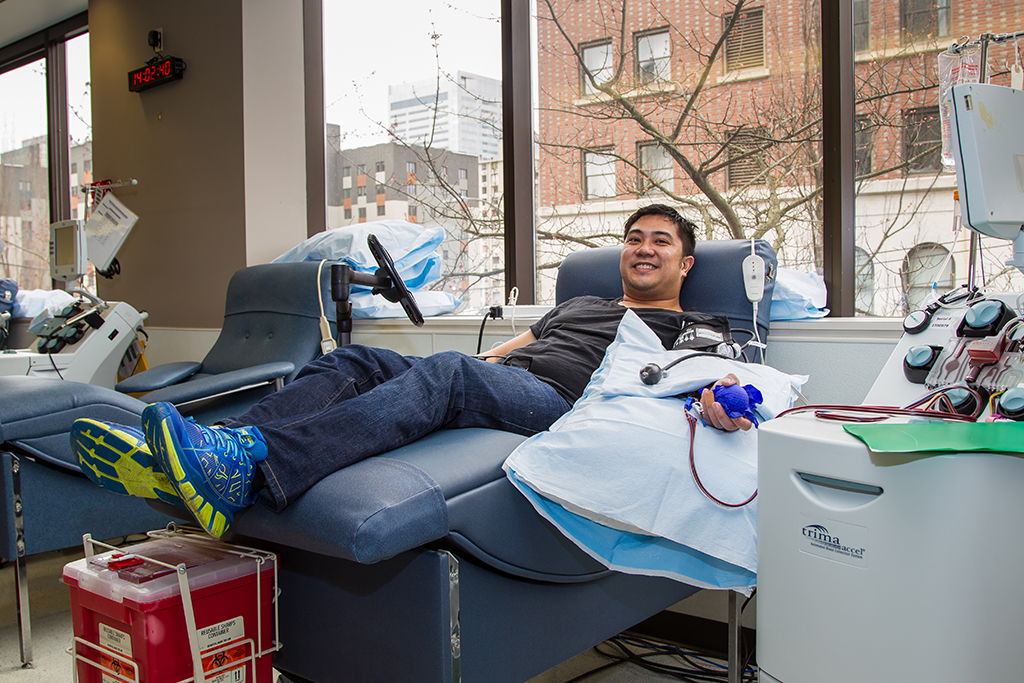By Dr. YanYun Wu
Chief Medical Officer, Bloodworks Northwest

Longtime platelet donor John-Paul Europa (Photo provided by Bloodworks Northwest)
When most people think about blood donation, they picture giving whole blood. You arrive, answer some medical and travel questions, do a quick health check, then relax and donate a pint. Afterwards, enjoy snacks and juice. Comfortable and easy. And in less than an hour, you are on your way!
But there is another kind of blood donation. The process is called apheresis (ay-fer-ee-sis). It takes a little longer, but can have an even bigger impact in your community. Just like giving whole blood, apheresis is safe, comfortable, and virtually painless.
Here’s how it works. Your blood goes through a tube into a special, sterile machine. It passes through a centrifuge that separates it into its different parts: red cells, platelets, and plasma. Just one component is extracted — most often platelets. Then the rest of the blood is returned to the donor’s arm. It is amazing! In all, it takes about two hours. You can watch a movie or TV show, read, listen to music, or just sit back and relax — knowing that you are helping to save a life. And it is a safe, proven donation process.
Here’s what makes platelet donations so powerful and important. Platelets are especially needed by cancer patients and people having surgery. During one apheresis platelet donation, we can collect between one and three doses of platelets, while a whole blood donation produces only 1/5 of a platelet dose. And your body is super-fast when it comes to replacing all the platelets you give. Your blood is back to normal within one to three days.
In fact, your body makes platelets so fast that a person can safely donate platelets once every seven days.
Platelets have a shelf life of only five days, including the one to two days it takes for testing and processing. That means the need never stops. We can’t predict when it will happen, but often a patient’s life depends on receiving platelets. In life-threatening emergencies, patients often need multiple transfusions. That’s why we need a platelet supply at all times.
While about 40 percent of people in the Pacific Northwest can give blood, today only 10 percent do. An even smaller number are apheresis platelet donors. We urgently need more donors to keep up with the needs of local patients needing cancer treatment and surgery.
The need is even more intense, as we start the summer holidays.
It is easier than ever to donate platelets.
We will come to you! You can now give platelets at many of our mobile blood drives. We welcome the chance to do blood drives at your workplace, school, community center, or faith center. You can also donate at any one of our 12 donation centers in the region.
Donation appointments can be made at 800-398-7888 or online at BloodworksNW.org.



